Find Help
More Items From Ergsy search
-
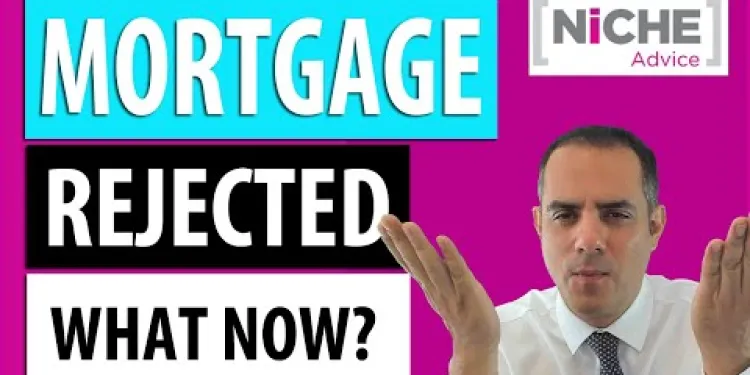
Turned down for a mortgage? Find out why and what to do
Relevance: 100%
-
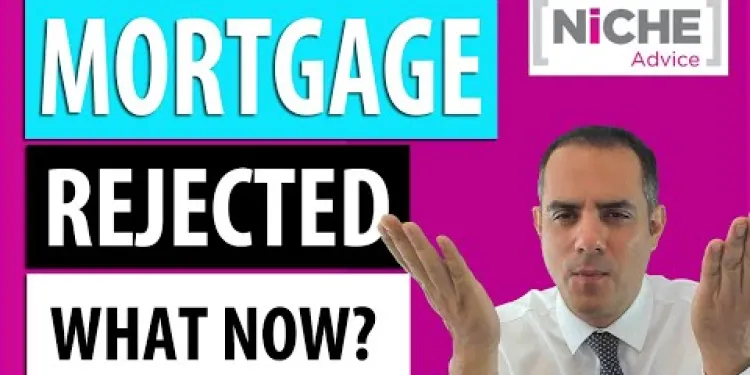
Turned down for a mortgage? Find out why and what to do
Relevance: 99%
-
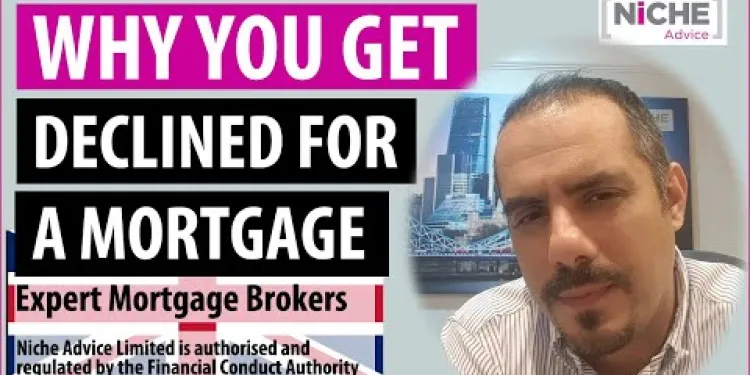
Mortgage Turned Down In The UK - Why mortgage applications are declined
Relevance: 94%
-
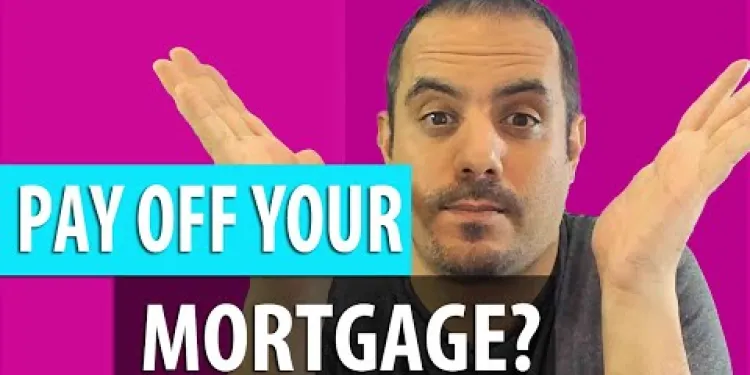
Should you Pay down your Residential Mortgage?
Relevance: 61%
-

Mortgage on Inherited Property - How we can help you with the finance
Relevance: 47%
-
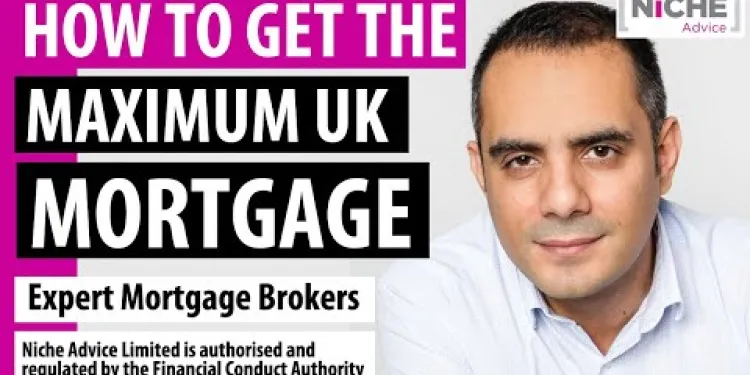
Getting the maximum mortgage in the UK
Relevance: 45%
-
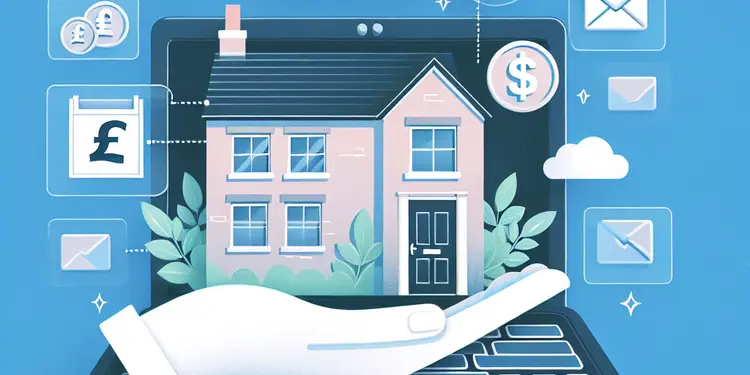
Is there assistance available for rent or mortgage payments?
Relevance: 43%
-
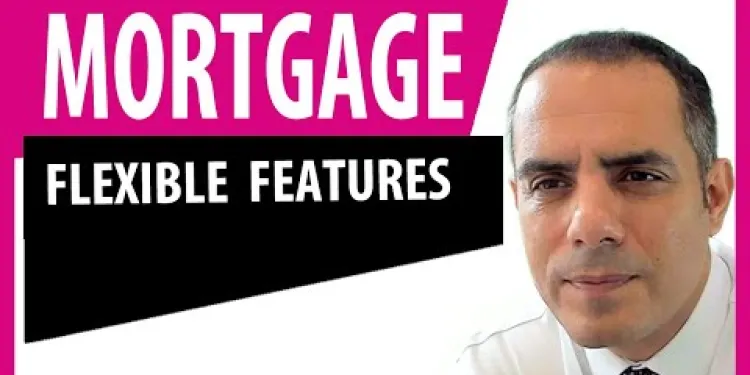
Mortgage Overpayment and Flexible Features Explained
Relevance: 42%
-
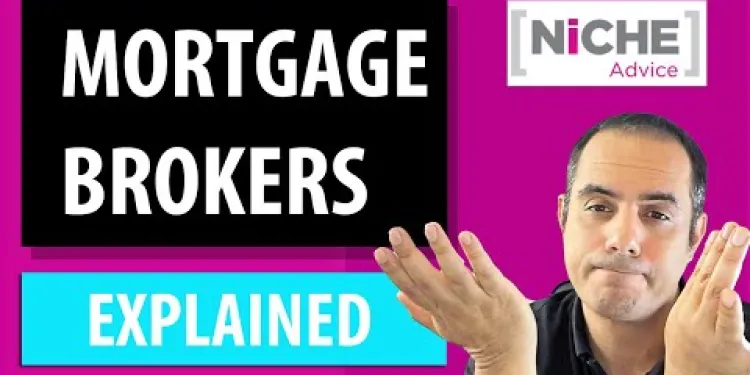
Selecting a Mortgage Broker - how they differ and what to watch out for
Relevance: 42%
-

What is an 'interest only' mortgage?
Relevance: 41%
-

5 Broker Exclusive Buy to Let Mortgage Lenders you need to know about as a Landlord
Relevance: 41%
-

How much can I borrow for a mortgage UK - getting the Maximum Mortgage
Relevance: 41%
-

How to turn your hearing aids on and off
Relevance: 40%
-

The Ultimate Buy-To-Let Mortgage Breakdown
Relevance: 40%
-
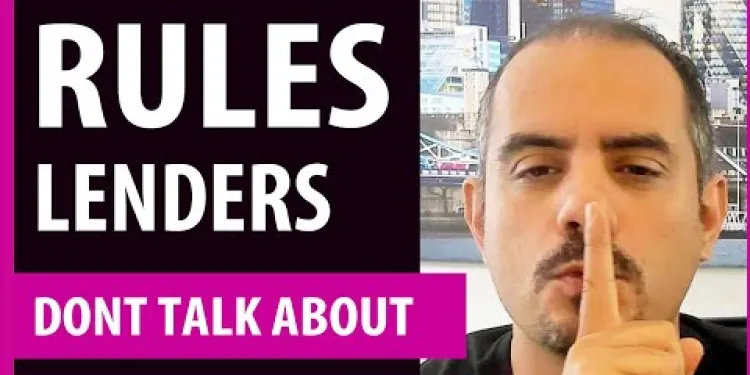
UK Mortgage Rules Lenders Don't Talk About - Debt To Income Ratio
Relevance: 39%
-
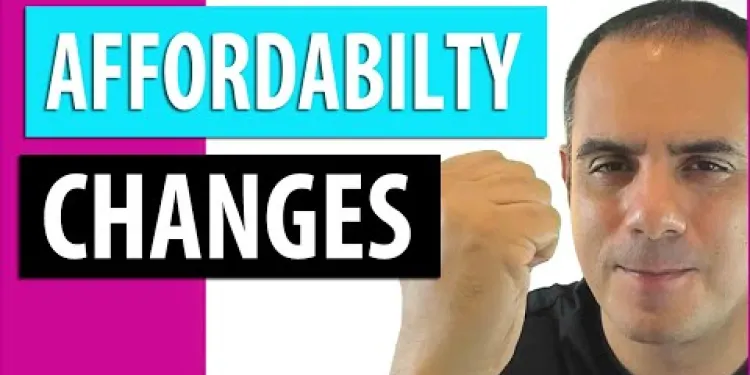
Mortgage Regulator removes the need for further affordability stress tests
Relevance: 39%
-

Is redirecting a security camera a solution?
Relevance: 39%
-
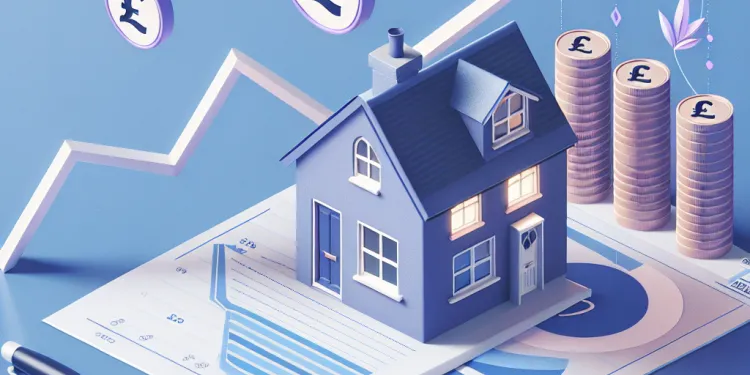
What should I do if I can't afford my mortgage payments due to rising interest rates?
Relevance: 39%
-
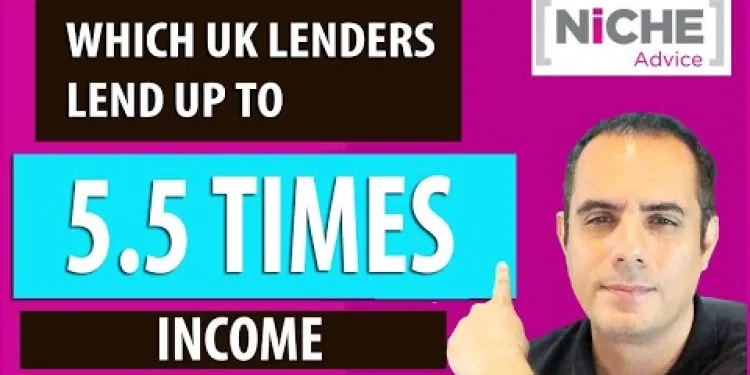
Highest Income Multiple Mortgage Lenders Revealed - Good and Bad Points
Relevance: 39%
-

Uk Buy to Let for Older Clients - Mortgage Options Tips and Criteria
Relevance: 38%
-

Can sunburn turn into a tan?
Relevance: 38%
-
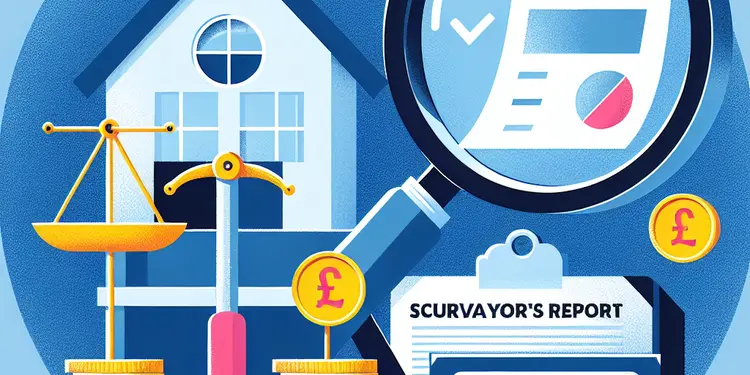
Is a mortgage valuation the same as a surveyor's report?
Relevance: 38%
-

How do interest rate changes affect my mortgage payments?
Relevance: 38%
-
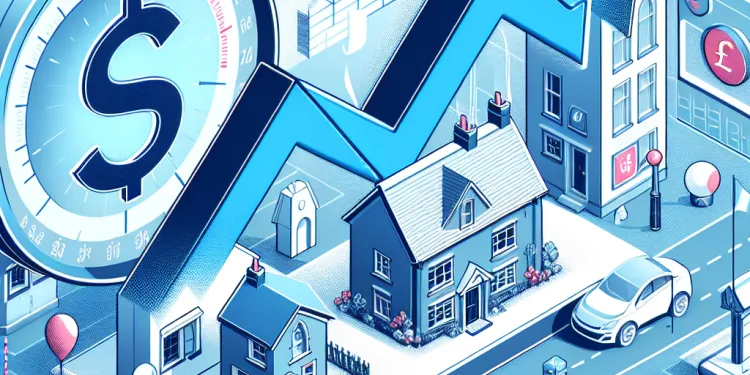
What is a tracker mortgage and how does it respond to interest rate changes?
Relevance: 37%
-
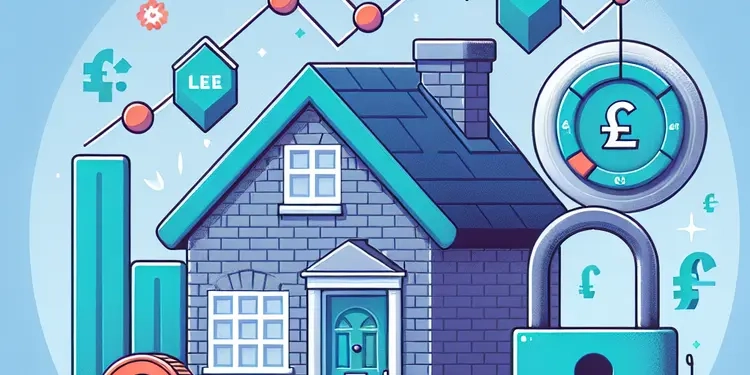
What does it mean to "Fix My Mortgage Rate"?
Relevance: 37%
-
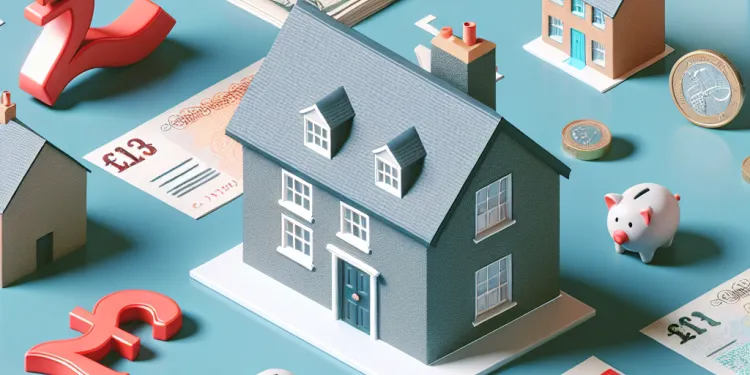
Can Stamp Duty be included in a mortgage in the UK?
Relevance: 37%
-

Having a child with Down's syndrome | NHS
Relevance: 37%
-

Down's syndrome: Emily's story | NHS
Relevance: 37%
-

Is mediation a viable solution?
Relevance: 36%
-

Will my fixed-rate mortgage payments change with interest rate fluctuations?
Relevance: 36%
-

Can mediation be a solution for director disputes?
Relevance: 36%
-
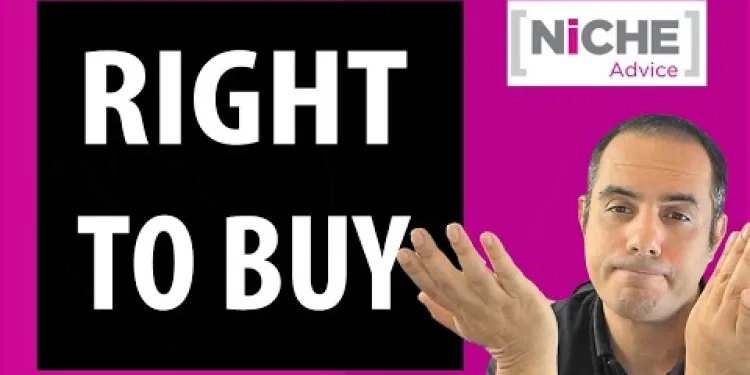
RIGHT TO BUY MORTGAGE - LET ME SAVE YOU TIME AND MONEY
Relevance: 36%
-
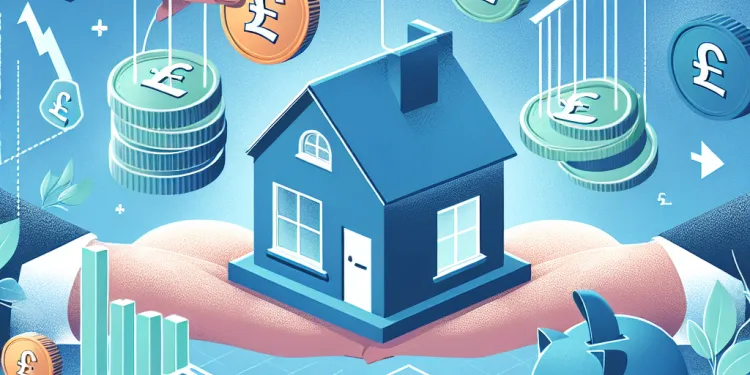
Is it possible to switch my mortgage type if interest rates become unfavourable?
Relevance: 36%
-
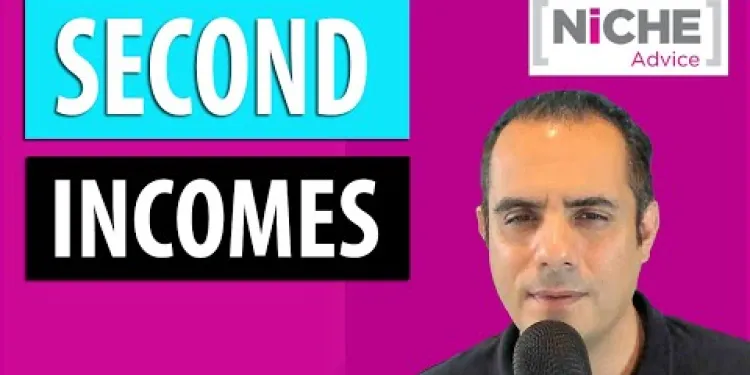
Using 100% of your Second Income for a Mortgage Application
Relevance: 35%
-
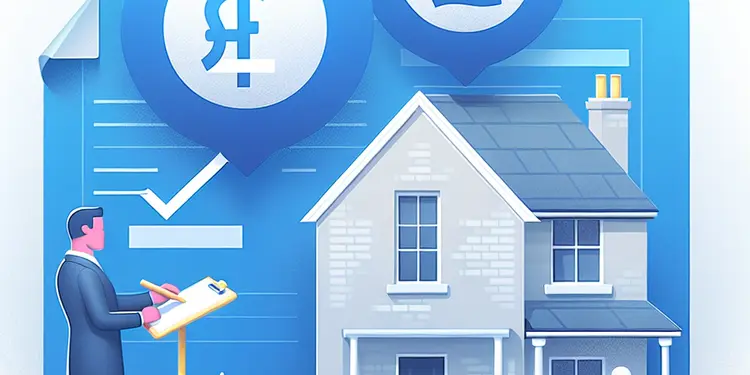
Can I use the surveyor recommended by my mortgage provider?
Relevance: 35%
-

HMO Mortgage Truths - how to get the best Finance option including Bridging Loan Criteria
Relevance: 35%
-
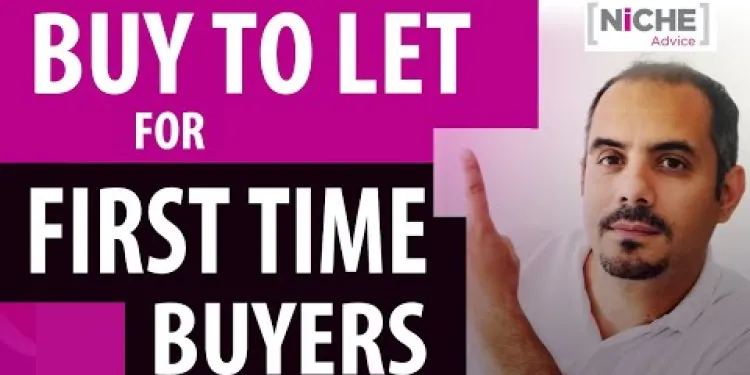
First Time Buyer Buy to Let Finance Options. Lending Criteria on Mortgage and Bridging Finance
Relevance: 35%
-

Can I get a Buy to Let Mortgage With My 18 Year Old Son
Relevance: 34%
-
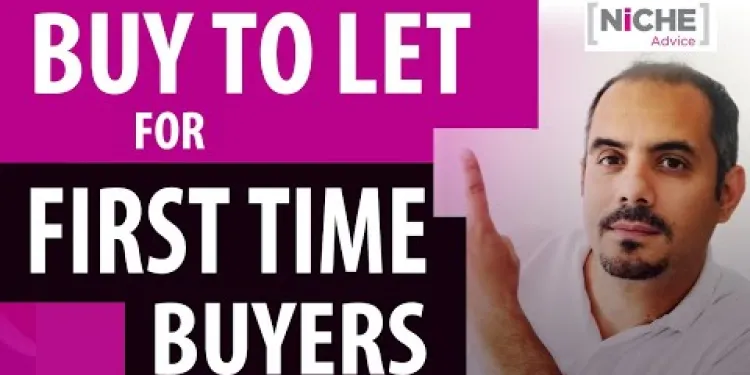
First Time Buyer Buy to Let Finance Options. Lending Criteria on Mortgage and Bridging Finance
Relevance: 34%
-
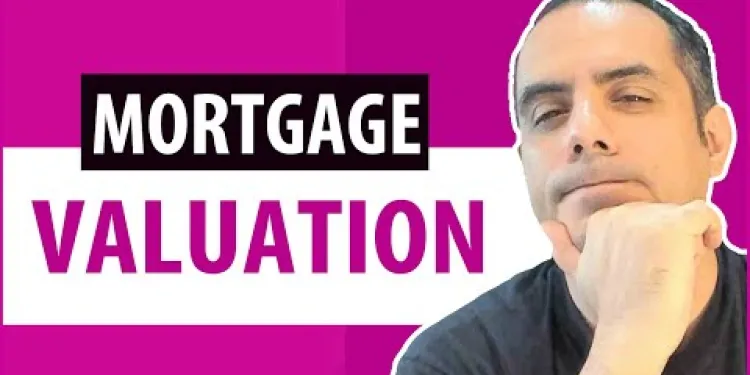
Can Mortgage lenders work from my own Survey Valuation Report?
Relevance: 34%
Turned Down for a Mortgage? Find Out Why and What to Do
Understanding Why Your Mortgage Application Was Denied
Being turned down for a mortgage can be a disheartening experience, especially if you were looking forward to purchasing your dream home. In the United Kingdom, lenders typically reject applications for several common reasons. One of the most prevalent is a poor credit history. Lenders review your credit report and may deny your application if they perceive a high risk of default. Insufficient income, unstable employment history, or existing high levels of debt can also contribute to a denial. Furthermore, issues related to the property valuation, such as it being valued lower than the agreed purchase price, may also lead to rejection.
Steps to Take After a Mortgage Denial
If your mortgage application has been declined, it is crucial to understand precisely why. Start by contacting the lender to request a detailed explanation. Once aware of the reasons, you can plan the necessary steps to address these issues. Improving your credit score is often a critical step. Paying off debts, reducing credit card balances, and ensuring timely payments can significantly enhance your creditworthiness over time. Reevaluating your budget and reducing existing debts can make you a more attractive candidate for lenders.
Exploring Alternative Mortgage Solutions
After improving your financial situation, you may wish to explore alternative mortgage solutions. Consider consulting a mortgage broker who can provide insight into different lenders who may have more flexible criteria. It might also be beneficial to look into government-backed schemes like Help to Buy or Shared Ownership, specifically designed to assist first-time buyers and individuals struggling to get on the property ladder. These schemes occasionally have different eligibility criteria and terms, potentially offering a viable pathway to homeownership.
Seeking Professional Guidance
If you're unsure about how to proceed, seeking advice from a financial advisor or mortgage expert can be invaluable. They can guide you on how to better position your application and improve your financial health for future attempts. Remember, being turned down for a mortgage isn’t the end of the road. With the right strategies and professional support, you can enhance your prospects and achieve your goal of homeownership in the UK.
Turned Down for a Mortgage? Find Out Why and What to Do
Why Was Your Mortgage Application Denied?
Getting a "no" for a mortgage can feel really disappointing, especially if you want to buy your perfect house. In the UK, there are common reasons why banks might say no. One big reason is having a bad credit history. This means if you have missed payments before or have a lot of debt, the bank might think it's too risky to lend you money. Other reasons can be that you don't make enough money, your job history isn't stable, or you already owe a lot. Also, if the house you want is worth less than the price you agreed to pay, the bank might not agree to the mortgage.
What to Do After Being Denied a Mortgage
If the bank says no to your mortgage, it’s important to find out why. You should ask the bank for a detailed explanation. Once you know the reasons, you can work on fixing them. A big step is to make your credit score better. This is like your report card for how you handle money. You can improve it by paying off debts, lowering credit card balances, and making sure you pay all bills on time. Also, look at how much you spend and try to pay off what you owe. This can make banks more likely to say “yes” next time.
Looking at Other Mortgage Options
After you get your finances better, you can look for other mortgage options. Talking to a mortgage broker can help. They know many different lenders and might find some that suit you better. You might also want to check out government programs like Help to Buy or Shared Ownership. These programs are there to help people buy their first home, especially if it’s hard to get a mortgage. They have different rules and might be easier for you.
Getting Professional Help
If you don’t know what to do next, talking to a financial advisor or mortgage expert can really help. They can give you tips on how to make your application stronger and handle your money better for next time. Remember, getting a "no" isn’t the end. With the right plan and some help, you can try again and maybe buy your dream home in the UK.
Frequently Asked Questions
Why was my mortgage application declined?
Your mortgage application could have been declined for several reasons, such as a low credit score, insufficient income, high debt-to-income ratio, or problems with the property itself.
Can a low credit score affect my mortgage approval?
Yes, a low credit score can negatively impact your mortgage application because lenders use it to assess your creditworthiness and your ability to repay the loan.
What role does my income play in mortgage approval?
Lenders assess your income to ensure that you have a reliable source to repay the mortgage. Insufficient income or an unstable job history could lead to a declined application.
How does my existing debt affect my application?
Lenders look at your debt-to-income ratio to determine if you can handle additional mortgage debt. High levels of existing debt relative to your income can result in a rejection.
Can issues with the property impact mortgage approval?
Yes, the property's condition, location, or appraisal value can affect approval. If a lender sees risk in these areas, they may decline your mortgage application.
What steps can I take after being declined to improve my chances?
Review the lender's reasons for rejection, improve your credit score, reduce existing debts, increase your savings, and consider waiting to reapply when your financial situation improves.
Should I apply with a different lender after being declined?
Applying with a different lender could be beneficial as each lender has different criteria and risk assessments. However, ensure your financial situation has improved before reapplying.
Is it possible to appeal a declined mortgage application?
You can contact the lender to discuss an appeal, especially if you believe there were errors in their decision. Have documentation ready to support your case.
How long should I wait before reapplying for a mortgage?
The timeframe to reapply can vary. It’s advisable to address the reasons for the previous rejection and make necessary improvements, which could take a few months or more.
Can I get a mortgage if I’m self-employed?
Yes, but self-employed individuals might face stricter scrutiny. Lenders typically require additional documentation, such as tax returns and business accounts, to verify income stability.
What can I do to improve my credit score?
Pay off outstanding debts, make payments on time, avoid applying for new credit, and check your credit report for discrepancies that need correction.
Does the size of my deposit affect mortgage approval?
A larger deposit can improve your chances as it reduces the loan-to-value ratio, posing less risk to the lender. It may also help you secure better interest rates.
Will using a mortgage broker help me get approved?
A mortgage broker can offer expert advice, assist in finding lenders that match your financial situation, and potentially help you negotiate better terms.
How can I reduce my debt-to-income ratio before applying?
Pay down existing debts, increase your income, avoid taking on new debts, and create a budgeting plan to maintain lower spending.
Are there government schemes available to help first-time buyers?
Yes, schemes like Help to Buy or Shared Ownership can assist first-time buyers by offering equity loans or allowing them to purchase a share in a home and pay rent on the rest.
Why didn't I get my mortgage?
Your request for a mortgage might not have been approved for different reasons. These can be:
- Your credit score is too low.
- You don't earn enough money.
- You owe too much money compared to what you earn.
- There could be issues with the house you want to buy.
If you're finding it hard to understand this, you could use tools like text-to-speech programs. These read the text out loud for you. You could also ask someone to explain it to you.
Will a low credit score make it hard to get a mortgage?
A credit score is a way for banks to see if you pay back money you borrow. If you have a low credit score, it might be harder to get a loan to buy a house, which is called a mortgage.
Here are some tips that might help:
- Check your credit report to know your score.
- Pay your bills on time to improve your score.
- Talk to a bank to understand your options.
You can also ask someone you trust for help, like a family member or a friend.
Yes, having a low credit score can make it harder to get a mortgage. This is because lenders look at your credit score to see if you are good at paying back money you borrow.
How does my money help me get a mortgage?
Your income is the money you earn. This money helps you pay for things.
When you want to get a mortgage (a loan to buy a house), the bank checks how much money you make.
If you make enough money, the bank thinks you can pay back the loan. This makes it easier to get a mortgage.
Sometimes, people use helpers like a calculator or talk to someone at the bank to understand better.
Remember: Having a good income can help you get the loan you need to buy your house.
The people who give loans look at how much money you make. They want to make sure you can pay back the money you borrow for a house.
If you don't make enough money, or if you keep changing jobs, they might say no to your loan request.
How does my debt affect my application?
Do you have money that you owe? This is called debt. When you apply for something, like a loan or a credit card, they look at how much debt you have.
If you owe a lot of money, it might make it harder to get more money from a bank. This is because they think about whether you can pay them back.
Here is how you can get help:
- Use a calculator to see how much you owe.
- Ask someone you trust to help you understand it.
- You can talk to a money advisor for free advice.
Banks want to see how much money you make and how much you owe before they give you more money for a house. If you owe too much already, they might say "no" to giving you more money.
Here are some tips that might help:
- Use a calculator to see how much money you owe compared to how much money you earn.
- Try to pay off some debts before asking for more money.
- Talk to someone who can help you manage your money better.
Can problems with the house stop you from getting a loan?
Yes, the house's condition, where it is, or how much it is worth can affect if you get approved. If the bank thinks there is a problem with these things, they might say no to your home loan.
What can I do if I get a 'no' and want to try again?
If someone says 'no' and you want to try again, here are some simple steps you can take to do better next time.
- Ask why: It's good to ask why they said 'no'. This helps you understand what to work on.
- Learn and practice: Try to learn new things or practice more to get better.
- Get help from tools or friends: Use helpful tools like dictionaries or ask friends and family to help.
- Try again: Once you feel ready, try again and do your best.
Remember, it's okay to ask for help and keep trying!
Find out why the lender said no. Try to make your credit score better. Pay off some of your debts. Save more money. You can try applying again when your money situation gets better.
What should I do if one lender says no to my application?
If one lender does not give you the loan, you might wonder if you should try with another lender. Here is some advice: 1. **Find Out Why:** Ask the first lender why they said no. This can help you understand what went wrong. 2. **Check Your Information:** Look at your details like your credit score and income. Make sure everything is correct. 3. **Fix Problems:** If there are problems, try to fix them before applying again. 4. **Use Tools:** Use online tools to check your credit score. This helps you know if you can improve before trying again. 5. **Talk to an Expert:** Sometimes talking to a money advisor can help. They can give you tips on what to do next. Trying again with a different lender can be okay, but it is good to make sure everything is in order first.Trying another lender might help you because each one has different rules. But before you try again, make sure your money situation is better.
Can you ask the bank to change their mind if they say no to your home loan?
You can talk to the person who gave you the loan if you think they made a mistake. Get your papers ready to show them why you think there was a mistake.
When can I ask for a mortgage again?
If you didn't get the mortgage, don't worry. You can try again.
It is good to wait a little before asking again. This gives you time to fix any problems.
Try waiting about 6 months. During this time, you can save money and make sure to pay your bills on time.
Here are some tips to help you improve:
- Look at your credit report to see if there are any mistakes. You can ask someone you trust to help you understand it.
- Make a plan to pay off any debts. This will make you look better to the bank.
- Some people find tools or apps helpful. They remind you to pay your bills on time.
After doing these things for a while, you can try to get a mortgage again.
How long it takes to try again can be different for everyone. It’s a good idea to fix the things that led to the last no and make things better, which might take a few months or more.
Can I get a home loan if I work for myself?
Yes, you can still get a home loan if you work for yourself. Here are some tips to help you:
- Keep your work records tidy. This means saving all papers that say how much money you earn.
- Try to show you earn money in the same job for at least 2 years.
- You might need help from a money expert. This person is called a mortgage advisor.
You can also use tools online to help you understand more. Just ask an adult to help you find them!
Yes, but if you work for yourself, banks will look at your money more carefully. They usually ask for extra papers, like your tax forms and business records, to make sure your income is steady.
How can I make my credit score better?
Pay off any money you owe. Always pay bills on time. Don't ask for new credit cards. Check your credit report to make sure there are no mistakes.
Will a Bigger Deposit Help Me Get a Mortgage?
Yes, having more money saved up (called a deposit) can help you get a mortgage. Here’s how: - **Bigger Deposit:** A bigger deposit can make it easier for the bank to say yes to your mortgage. It shows them you have saved money and can help pay for the house. - **Better Deals:** With a bigger deposit, you might get better mortgage deals with lower interest rates, which means paying less money back over time. If reading is hard, you can: - Use a ruler or your finger to help keep track of lines. - Ask someone to read with you and explain anything confusing. - Try using apps or tools that read text out loud.Saving up more money can help you get a house loan. The bank will see you as less risky, which means they are happier to help you. You might also get better deals on your loan.
Here are some tips that might help:
- Try using a calculator to see how much money you need.
- Stick to a savings plan and put money away each month.
- Ask a family member or friend if they can save together with you or give advice.
- Use coloring charts to mark your progress. This makes saving fun!
Can a mortgage broker help me get a loan?
Getting a home loan can be hard. A mortgage broker is someone who helps people find the right loan and talk to banks.
Here is how a mortgage broker can help:
- They know a lot about loans and banks.
- They can find loans that suit you.
- They help with all the forms.
- They give advice on what to do next.
Some people find it helpful to use tools like:
- Checklists: To remember what you need.
- Step-by-step guides: To show what to do and when.
If you have questions, a mortgage broker can be a good person to talk to.
A mortgage broker is someone who can give you good advice about loans. They help you find a bank or lender that suits your money needs. They can also help you get a better deal on your loan.
How can I lower my debt before I apply?
1. **Spend Less, Save More**: Try to spend less money on things you don't need. This way, you can save up some money. 2. **Pay Off Debts**: Start paying back the money you owe. Pay a little extra each month if you can. 3. **Make a Budget**: Write down how much money you get and how much you spend. This can help you see where you can save more. 4. **Use Math Apps**: Use phone apps to help you keep track of your money. They can do the math for you! 5. **Ask for Help**: Talk to an adult if you need help with money. They can give you good advice. These steps can help you manage your money better.Try to pay off the money you owe. Try to earn more money. Don't borrow more money. Make a plan to spend less.
Can the government help people buy their first home?
Yes, the government has programs to help you buy your first home.
If you want to understand better or need help, you can:
- Ask someone you trust to explain it.
- Look for websites with easy information.
- Use apps or tools that read out loud.
- Find videos about buying your first home.
Yes, there are plans that can help people buy their first home. These plans give loans or let you buy a part of the home and pay rent on the rest.
Useful Links
This website offers general information and is not a substitute for professional advice.
Always seek guidance from qualified professionals.
If you have any medical concerns or need urgent help, contact a healthcare professional or emergency services immediately.
Some of this content was generated with AI assistance. We’ve done our best to keep it accurate, helpful, and human-friendly.
- Ergsy carfully checks the information in the videos we provide here.
- Videos shown by Youtube after a video has completed, have NOT been reviewed by ERGSY.
- To view, click the arrow in centre of video.
- Most of the videos you find here will have subtitles and/or closed captions available.
- You may need to turn these on, and choose your preferred language.
- Go to the video you'd like to watch.
- If closed captions (CC) are available, settings will be visible on the bottom right of the video player.
- To turn on Captions, click settings .
- To turn off Captions, click settings again.
More Items From Ergsy search
-

Turned down for a mortgage? Find out why and what to do
Relevance: 100%
-

Turned down for a mortgage? Find out why and what to do
Relevance: 99%
-

Mortgage Turned Down In The UK - Why mortgage applications are declined
Relevance: 94%
-

Should you Pay down your Residential Mortgage?
Relevance: 61%
-

Mortgage on Inherited Property - How we can help you with the finance
Relevance: 47%
-

Getting the maximum mortgage in the UK
Relevance: 45%
-

Is there assistance available for rent or mortgage payments?
Relevance: 43%
-

Mortgage Overpayment and Flexible Features Explained
Relevance: 42%
-

Selecting a Mortgage Broker - how they differ and what to watch out for
Relevance: 42%
-

What is an 'interest only' mortgage?
Relevance: 41%
-

5 Broker Exclusive Buy to Let Mortgage Lenders you need to know about as a Landlord
Relevance: 41%
-

How much can I borrow for a mortgage UK - getting the Maximum Mortgage
Relevance: 41%
-

How to turn your hearing aids on and off
Relevance: 40%
-

The Ultimate Buy-To-Let Mortgage Breakdown
Relevance: 40%
-

UK Mortgage Rules Lenders Don't Talk About - Debt To Income Ratio
Relevance: 39%
-

Mortgage Regulator removes the need for further affordability stress tests
Relevance: 39%
-

Is redirecting a security camera a solution?
Relevance: 39%
-

What should I do if I can't afford my mortgage payments due to rising interest rates?
Relevance: 39%
-

Highest Income Multiple Mortgage Lenders Revealed - Good and Bad Points
Relevance: 39%
-

Uk Buy to Let for Older Clients - Mortgage Options Tips and Criteria
Relevance: 38%
-

Can sunburn turn into a tan?
Relevance: 38%
-

Is a mortgage valuation the same as a surveyor's report?
Relevance: 38%
-

How do interest rate changes affect my mortgage payments?
Relevance: 38%
-

What is a tracker mortgage and how does it respond to interest rate changes?
Relevance: 37%
-

What does it mean to "Fix My Mortgage Rate"?
Relevance: 37%
-

Can Stamp Duty be included in a mortgage in the UK?
Relevance: 37%
-

Having a child with Down's syndrome | NHS
Relevance: 37%
-

Down's syndrome: Emily's story | NHS
Relevance: 37%
-

Is mediation a viable solution?
Relevance: 36%
-

Will my fixed-rate mortgage payments change with interest rate fluctuations?
Relevance: 36%
-

Can mediation be a solution for director disputes?
Relevance: 36%
-

RIGHT TO BUY MORTGAGE - LET ME SAVE YOU TIME AND MONEY
Relevance: 36%
-

Is it possible to switch my mortgage type if interest rates become unfavourable?
Relevance: 36%
-

Using 100% of your Second Income for a Mortgage Application
Relevance: 35%
-

Can I use the surveyor recommended by my mortgage provider?
Relevance: 35%
-

HMO Mortgage Truths - how to get the best Finance option including Bridging Loan Criteria
Relevance: 35%
-

First Time Buyer Buy to Let Finance Options. Lending Criteria on Mortgage and Bridging Finance
Relevance: 35%
-

Can I get a Buy to Let Mortgage With My 18 Year Old Son
Relevance: 34%
-

First Time Buyer Buy to Let Finance Options. Lending Criteria on Mortgage and Bridging Finance
Relevance: 34%
-

Can Mortgage lenders work from my own Survey Valuation Report?
Relevance: 34%


